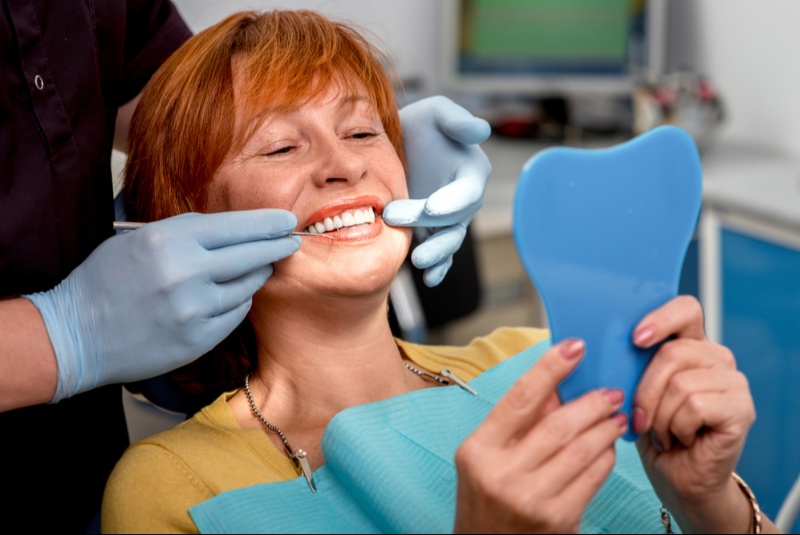Many people suffer from hypersomnia every day yet most people don’t know that there are easy ways to treat it with just a few changes. The first step is to even figure out whether you have hypersomnia or something completely different by looking for tell-tale warning signs of hypersomnia.
Hypersomnia is a condition that manifests itself in an inability to stay awake during the day. Specifically, it refers to those who get enough or more than enough sleep during the night only to still feel drowsy during the day. This can have a huge effect on someone’s ability to live a normal life.
The Definition of Hypersomnia
Where people who have insomnia cannot fall asleep, those who suffer from hypersomnia cannot stay awake. They constantly feel sleepy during the day no matter how much rest they get. As a result, they tend to be unable to function at full capacity and may even fall asleep multiple times at work. Not only can this impact a person’s individual performance, they can pose a danger to those around them.
Research has shown that hypersomnia is less common among males when compared to females. Around 5% of people in the world are believed to have symptoms, and it is usually diagnosed during teenage or early adulthood years.
The Symptoms of Hypersomnia
Signs that someone may be suffering from hypersomnia are:
• Continually tired during the day
• Resting long periods of time and still being sleepy
• Extreme difficulty waking up in the morning or from naps
• Naps having little to no effect on a person’s drowsiness
• Being easily annoyed or anxious
• Being lethargic
• A sensation of restlessness
• Decreased response time during thinking or communication
• Headaches
• No appetite
• Unable to focus or concentrate
• Visual or auditory hallucinations
The Cause of Hypersomnia
It’s important to remember that Primary Hypersomnia is when someone suffers from hypersomnia without the presence of a different medical condition that can explain the sleepiness. As such, researchers do not understand what the root cause of primary hypersomnia. Studies have shown that there may be a genetic link. There may also be a connection with certain chemicals in the brain known as neurotransmitters. These include things like dopamine, serotonin, histamine, and gamma-aminobutyric acid.
Primary vs Secondary Hypersomnia and Types
Secondary Hypersomnia is when the root cause of hypersomnia is known. This includes things like damage to the nervous system. Alcohol or certain medications can also play a part. Most notably, sleep apnea should be classified here since the sleepiness is distinctly caused by inadequate sleep even if the subject thinks they are getting enough.
Primary Hypersomnia is when the hypersomnia itself is its own primary condition. There isn’t a separate cause resulting in the hypersomnia. Within this classification, there are several types of Primary Hypersomnia:
• Narcolepsy Type 1
• Narcolepsy Type 2
• Idiopathic Hypersomnia
• Recurrent Hypersomnia, also called Kleine-Levin Syndrome
How to Diagnose Hypersomnia
Instead of relying on a single test, a medical professional has to take several factors into consideration. This includes any symptoms you feel, medical and sleep history, any medications, and any outside factors that may be affecting your sleep pattern. In order to better track this information, you may be asked to keep a journal on sleeping and waking patterns. There are also things like actigraphy sensors that can provide scientific measurements on how well you are actually sleeping.
Studies and research have shown that the following can lead to a hypersomnia diagnoses:
• Sleepiness during the day in spite of adequate rest and the inclusion of secondary symptoms such as: falling asleep multiple times in the day, not feeling fully awake after rousing from sleep, or getting 10 or more hours of sleep and still not feeling rested
• Experience these symptoms multiple times a week over the period of a few months
• The hypersomnia is causing problems in aspects of a normal day, such as work or social interactions
How to Treat Hypersomnia
Like with many conditions, a number of medications can be prescribed by a doctor to help with Hypersomnia. Because of the nature of sleep disorders though, you need to continue to keep track of your own progress and have follow-ups with your sleep specialist. Otherwise, it’ll be difficult to make dose adjustments or see if the medication is having the desired effect.
Outside of that, patients can also make a number of lifestyle changes. Maintaining a normal sleeping schedule is important, like being sure to go to bed at the same time every day. Caffeine and high-energy activities should be avoided right before bedtime. In addition, the need for comfortable sleeping should not be understated. This includes proper ventilation of your bedroom and having a comfortable mattress and pillows.
How to Prevent Primary Hypersomnia
Unfortunately, there isn’t a way to prevent this kind of Hypersomnia, and there is no definitive cure.
Living with Hypersomnia
While Hypersomnia isn’t a condition that is immediately life-threatening, it can severely impact your life if left untreated. Your relationships with friends and family can be hurt, and you might spend more time isolated at home instead of with those who care about you. You might fall asleep behind the wheel and cause great bodily harm to yourself or someone else. Getting professional help can reign in some of the symptoms and keep hypersomnia from completely controlling your life.





